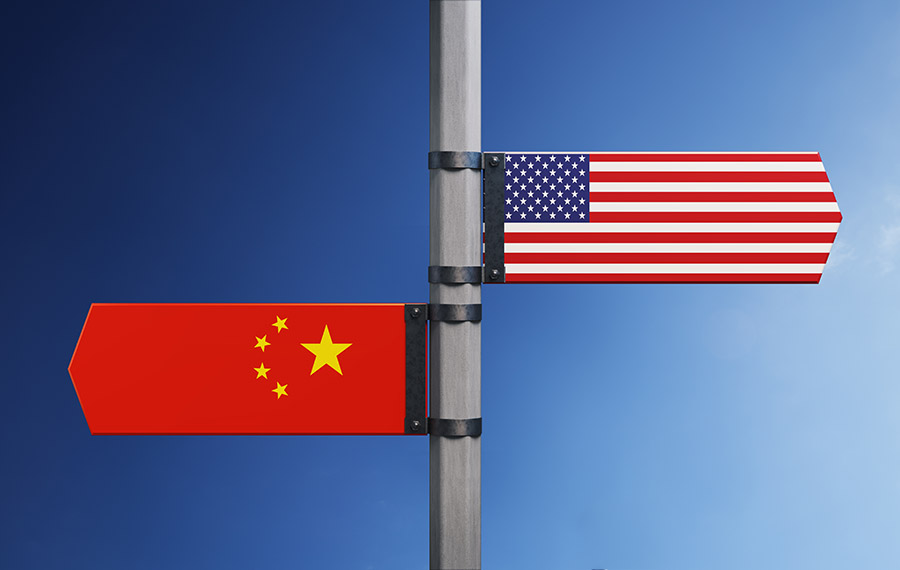Hoe Ee Khor, Chief Economist,ASEAN+3 Macroeconomic Research Office (AMRO)
Suan Yong Foo, Senior Economist, ASEAN+3 Macroeconomic Research Office (AMRO)
Jul 26, 2021
Heightened US-China tensions have raised the prospect of a deep global technology divide, potentially forcing other countries to choose which camp to join. There are plenty of grim scenarios involving irreconcilable splits between core technologies that power a wide range of products and services, from aircraft and automobiles to precision engineering for robotics and payment systems for e-commerce. Should these scenarios materialize, the world’s two largest economies will pour huge amounts of resources into a zero-sum race to control the cutting edge.
Leonardo Dinic, Expert in Geopolitics and International Business, the Future of Work, and Emerging Technologies
Jul 22, 2021
Rhetoric at NATO’s recent summit intensified the U.S.-China rivalry in global affairs. Now that the U.S. is in competition with China, will NATO member states follow suit?
Victor Zhikai Gao, Chair Professor at Soochow University, Vice President of CCG
Jul 16, 2021
There is just one conclusion to be drawn from the geopolitical confusion created by Washington’s maximum confrontation policy: Rather than war, China and America are actually destined for peace. This is the true mega trend in bilateral relations.

Philip Cunningham, Independent Scholar
Jul 13, 2021
Space exploration was once a militarized battleground - but with new practices of international cooperation, the atmosphere may be the common ground for the U.S. and China.

Shen Yamei, Director, Department for American Studies, China Institute of International Studies
Jul 13, 2021
It is time for China, once and for all, to counter the ideological demonization of the United States and explain itself to the world. To do that, it needs to articulate convincing values and ideas as alternatives to American-style democracy.
Ben Reynolds, Writer and Foreign Policy Analyst in New York
Jun 26, 2021
The Senate’s high-tech industry proposal marks a change in tone for the nation - no longer appealing to domestic job creation, the bill’s selling point lays bare the motivation to compete with China’s economy.
Christopher A. McNally, Professor of Political Economy, Chaminade University
Jun 25, 2021
The U.S. position on China has become increasingly antagonistic in recent years, but U.S. pressure is more likely to deepen Chinese hostility than it is to create productive reform.
Wu Zhenglong, Senior Research Fellow, China Foundation for International Studies
Jun 24, 2021
The Innovation and Competition Act of 2021 is a comprehensive attack that marks the advent of a comprehensive containment strategy against China by the United States. In response, China should cast aside unrealistic expectations, maintain strategic focus and put our own house in order.

Wang Jisi, Professor at School of International Studies and Founding President of Institute of International and Strategic Studies, Peking University
Jun 23, 2021
The United States and China are embroiled in a contest that might prove more enduring, more wide-ranging, and more intense than any other international competition in modern history, including the Cold War. In both countries, fears have grown that the contest might escalate into open conflict.

An Gang, Adjunct Fellow, Center for International Security and Strategy, Tsinghua University
Jun 10, 2021
As the Biden administration heads into the second stage, clear steps are visible: Clear out the negative Trump legacy, tighten global strategy, coordinate with allies to curb China and prioritize climate change in China-U.S. cooperation. Some things differ from Trump; others are the same or expanded.
Back to Top

- China-US Focus builds trust and understanding between the U.S. and China through open dialogue among thought leaders.
- Our Offerings
- Topics
- Videos
- Podcasts
- Columnists
- Research Reports
- Focus Digest
- Stay Connected
-
Thanks for signing up!
- Get the latest stories from China-US Focus weekly.